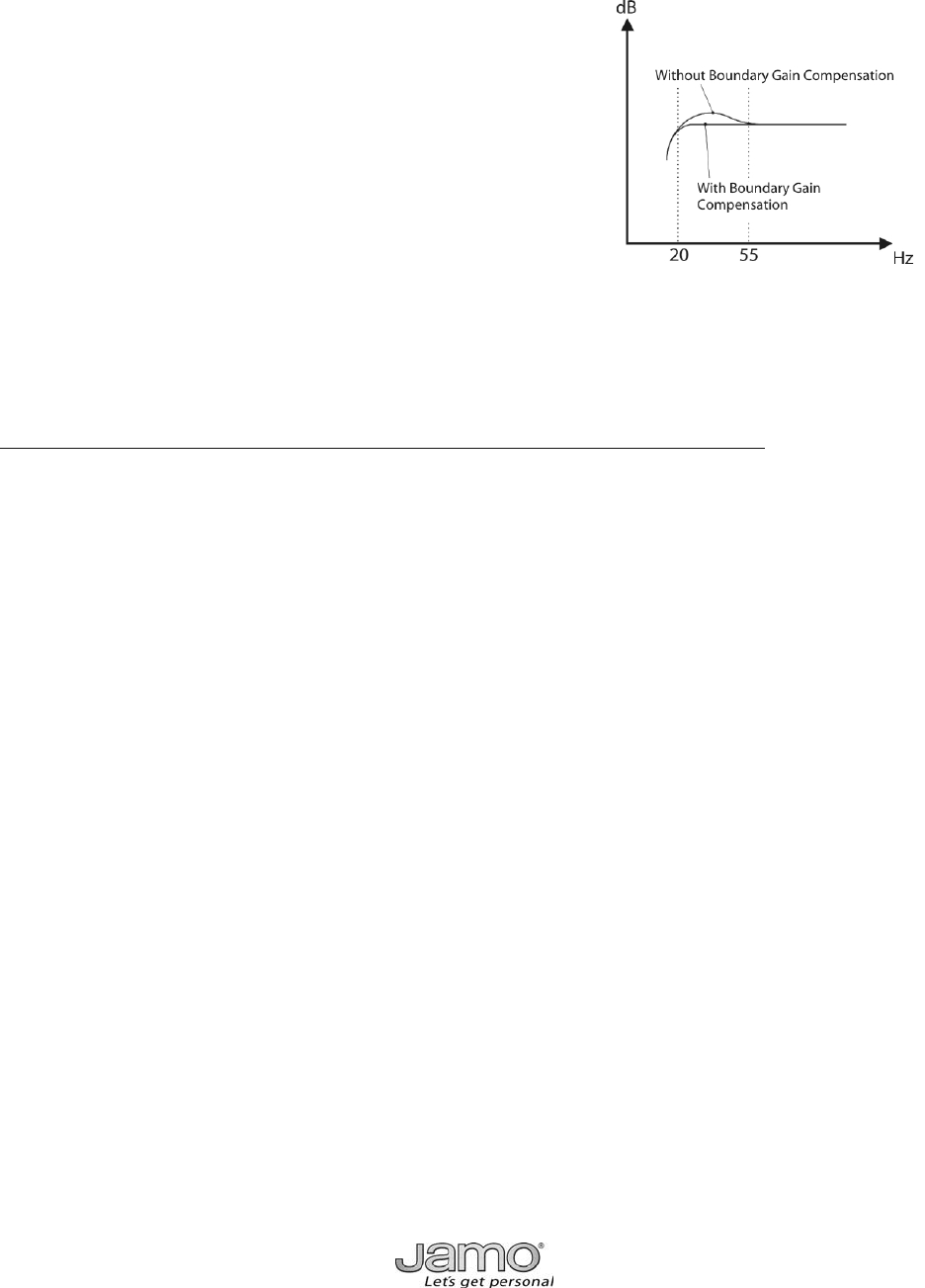
7
As mentioned the D 4SUB goes very low in order to reproduce the extreme bass contents
of movie soundtracks with full authority.
However, under certain circumstances this can create a problem, which is why some
decoders feature a Boundary Gain Compensation filter.
This filter compensates for the room influence at low
frequencies, as any room amplifies the lowest frequencies.
The magnitude of the room’s amplification depends on the
actual room and where you are positioned – normally it
increases the closer you get to a wall.
This can result in too high bass level from approx. 60 Hz and
increasing downwards.
In the range between 20-30Hz it peaks up to 5-10dB in an
average room.
At first impression this could sound really impressive, but especially when listening to
music the sound can be “boomy” and rather annoying. And certainly terms like coherent
and harmonious become impossible to use . . .
Therefore, the D 4SUB has a quite unique feature:
Boundary Gain Compensation is built into the D 4SUB on a separate input, thus always
granting you optimum benefit from the D 4SUB.
The level control is placed on top of the D 4SUB, elegantly integrated in the design it
grants easy access when you want to adjust the level depending on software type and
format (music, movie, DD/DTS etc.).














